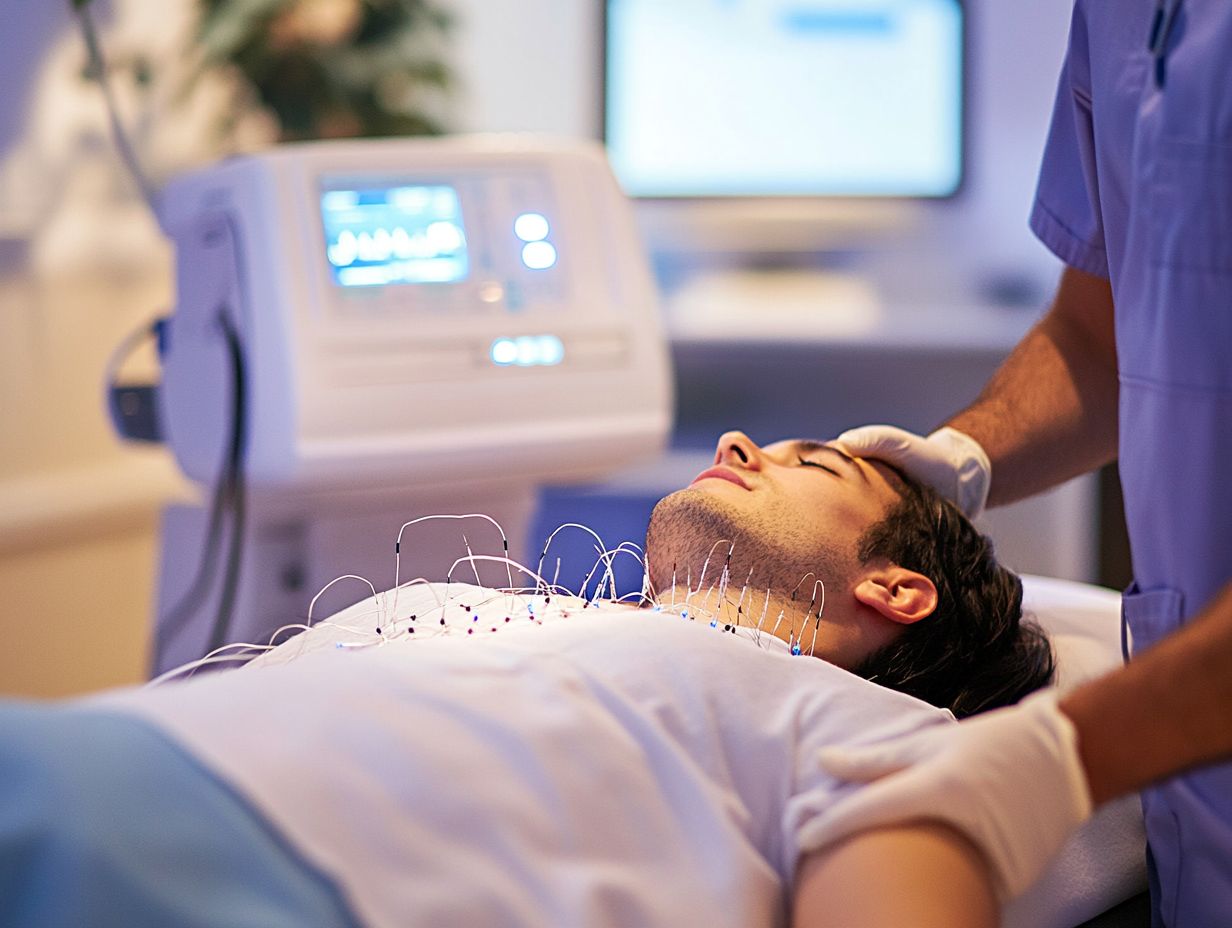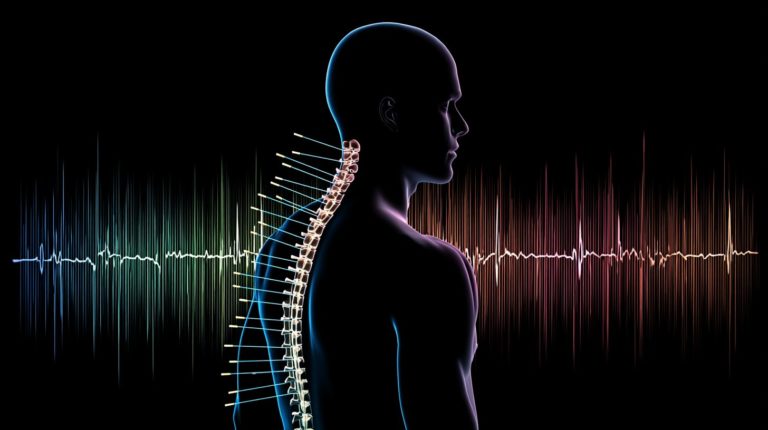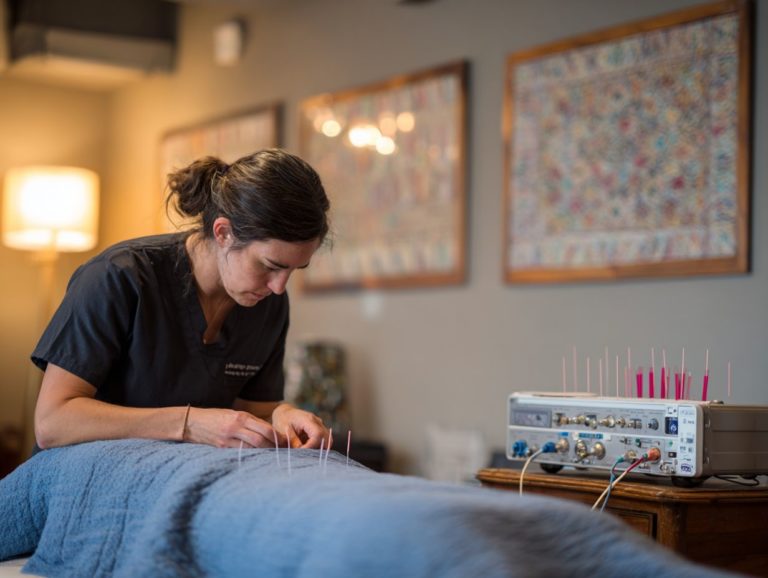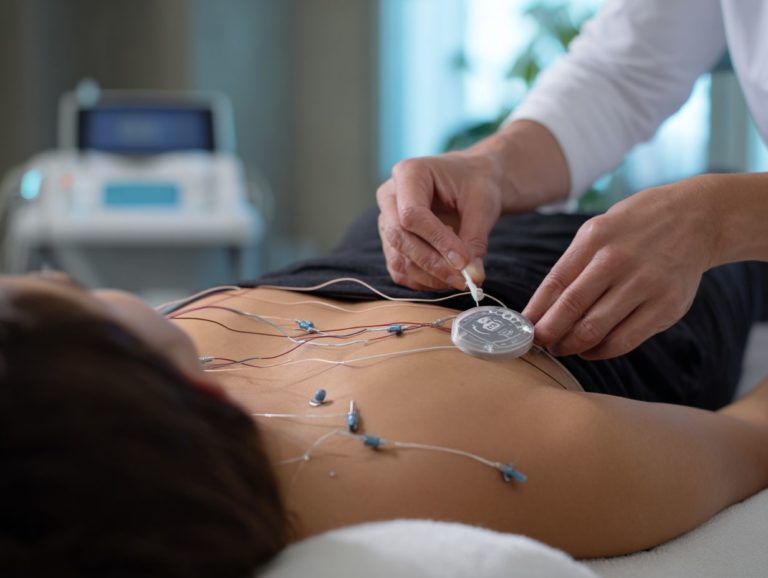Electrical Acupuncture: Benefits and Certification
Electrical acupuncture is an innovative blend of traditional acupuncture techniques and modern electrical stimulation, offering a unique approach to wellness.
This therapy not only targets pain relief but also promotes mental well-being and athletic performance.
We will explore how electrical acupuncture how it functions, its many advantages, and key safety points.
For those interested in pursuing a career in this field, we will guide you through the certification process, including essential training and what to look for in a program.
Join our event to learn about the strength and potential electrical acupuncture.
Key Takeaways:
Contents
- 1 What is Electrical Acupuncture?
- 2 How Does Electrical Acupuncture Work?
- 3 What Are the Benefits of Electrical Acupuncture?
- 4 Electrical Acupuncture Benefits Statistics
- 5 Is Electrical Acupuncture Safe?
- 6 How to Become Certified in Electrical Acupuncture?
- 7 What to Look for in an Electrical Acupuncture Certification Program?
- 8 Frequently Asked Questions
- 8.1 What is Electrical Acupuncture and how does it work?
- 8.2 What are the benefits of Electrical Acupuncture?
- 8.3 Is Electrical Acupuncture safe?
- 8.4 How long does it take to become certified in Electrical Acupuncture?
- 8.5 What are the requirements for becoming certified in Electrical Acupuncture?
- 8.6 Can I practice Electrical Acupuncture without being certified?
What is Electrical Acupuncture?

Electrical acupuncture, or electroacupuncture, combines traditional Chinese medicine with current electrical methods. It focuses on specific points by using needles, which supports the body’s natural healing.
By using a gentle electrical current, practitioners can improve energy movement and make the treatment more effective. This technique is often selected by people looking for natural methods to reduce pain and lower inflammation.
How Does Electrical Acupuncture Work?
Electrical acupuncture works by applying electrical impulses to acupuncture needles inserted at specific meridian points, thus enhancing the traditional acupuncture therapy experience. This method stimulates the body’s qi flow, promoting the release of endorphins, which act as natural pain relief agents.
This new method increases the impact of the needles and directly affects neurotransmitter activity. Research indicates that the electrical stimulation facilitates the release of neurotransmitters such as serotonin and dopamine, which contribute to mood elevation and pain modulation.
Clinical studies have demonstrated that patients suffering from chronic pain conditions, including fibromyalgia and arthritis, frequently experience significant reductions in pain levels and improved mobility following electroacupuncture sessions. For those interested in a comprehensive overview, this analysis by ScienceDirect covers the full spectrum of mechanisms and clinical applications of electroacupuncture.
Using muscle stimulation can help ease spasms. This method both reduces pain and improves how muscles work. In fact, acupuncture’s effectiveness in pain relief (as explored in our elaboration on its techniques and uses) underscores its value in holistic health practices.
What Are the Benefits of Electrical Acupuncture?
Electrical acupuncture has many benefits and can be used in acupuncture and traditional Chinese medicine.
It helps relieve chronic pain and muscle spasms, reduce stress and anxiety, and improve sleep quality. It can also help athletes recover faster and reduce inflammation. According to Healthline, the practice is backed by scientific evidence and is considered effective for treating various conditions. For those interested in a broader perspective on how acupuncture effectively addresses pain relief, Acupuncture: Pain Relief Uses, Techniques, and Effectiveness offers valuable insights.
Electrical Acupuncture Benefits Statistics
Electrical Acupuncture Benefits Statistics
Electroacupuncture Benefits: Brain Activation
The Electrical Acupuncture Benefits Statistics offers interesting information on how electroacupuncture, a modern version of traditional acupuncture, affects brain activity. By studying the hypothalamus, an important part of the brain that controls hormones and keeps the body stable, the data shows specific activation times in both animal models and humans.
Electroacupuncture Benefits demonstrate the efficacy of this technique in activating the hypothalamus. In experimental settings, animals experience hypothalamus activation within 9 seconds, showcasing a rapid neurological response to electrical stimuli. Conversely, humans exhibit hypothalamus activation in 22 seconds, suggesting that while the response is slower compared to animals, it is still notably quick.
- These activation times highlight electroacupuncture’s potential in therapeutic settings, particularly for stress-related conditions regulated by the hypothalamus. The fast activation might help reduce symptoms faster by using the hypothalamus’s function in controlling stress and anxiety.
- The data also highlight the physical differences between humans and animals, which might affect how quickly they respond. This knowledge can help customize treatment plans for different animals, improving how the method is used in veterinary settings too.
Overall, the Electrical Acupuncture Benefits Statistics emphasizes the promising role electroacupuncture plays in activating key brain regions. The technique’s quick effect suggests possible uses in clinical treatments for stress and hormone control, making it a useful tool in modern complementary medicine.
1. Pain Management
One of the most significant benefits of electroacupuncture is its effectiveness in pain management, particularly for those suffering from chronic pain conditions and muscle spasms. Applying electrical stimulation to specific meridian points can reduce inflammation and improve blood circulation, leading to pain relief.
This technique helps trigger the body’s own healing processes and promotes the release of endorphins and other chemicals that naturally ease pain.
Research indicates that patients receiving electroacupuncture experience a noticeable decrease in pain levels, with some studies reporting up to a 70% improvement in chronic pain cases.
Testimonials from people who have tried electroacupuncture show they feel more mobile and have much less pain, often allowing them to get back to daily tasks they once couldn’t do.
Using electrical stimulation alongside traditional acupuncture methods is an effective way to reduce pain, and many people experience significant benefits.
2. Stress and Anxiety Relief
Electroacupuncture proves beneficial for individuals dealing with chronic stress and anxiety by promoting relaxation and emotional balance. Stimulating certain acupuncture points with electricity can change how sympathetic nerve fibers work, increasing endorphin release that aids in reducing stress.
This method has been shown to affect neurotransmitter levels, such as serotonin and dopamine, which are important for controlling mood.
Practitioners have reported that patients often experience improved emotional well-being and a reduction in depressive symptoms following sessions.
Notably, a study published in the Journal of Alternative and Complementary Medicine demonstrated that participants receiving electroacupuncture experienced significant decreases in anxiety levels compared to those who did not. Supporting these findings, research in Frontiers in Psychology further confirms the effectiveness of electroacupuncture in alleviating anxiety symptoms.
These findings suggest that including electroacupuncture in mental health treatment plans can improve both mental and physical health. For those interested in how traditional techniques like acupuncture are applied for broader health benefits, our deep dive into pain relief through acupuncture explores various uses and techniques.
3. Improved Sleep

Better sleep is another key benefit of electroacupuncture, as the treatment helps with relaxation and balances the body’s energy flow. When patients tackle problems like stress and pain, they often find that their sleep improves and insomnia symptoms decrease.
Research indicates that the gentle stimulation provided by this modality can significantly impact neurochemical processes that govern sleep patterns, leading to a more balanced circadian rhythm.
Clinical experiences show that people with sleep problems have said they fall asleep faster and have deeper, more refreshing sleep after a series of electroacupuncture sessions.
Studies have shown that the therapy helps to lower levels of cortisol, the stress hormone, which can hinder restful sleep. By using this new method in treatment plans, healthcare professionals are finding effective ways to reduce different sleep-related problems.
4. Enhanced Athletic Performance
Electroacupuncture is becoming well-known among athletes who want to improve their performance and speed up recovery. By reducing inflammation and alleviating muscle spasms, this treatment can significantly improve an athlete’s overall physical condition and readiness.
Many studies show it can help you recover faster after hard workouts and prevent injuries.
This innovative approach applies electrical stimulation through acupuncture needles, promoting increased blood flow and facilitating the healing of tissues.
Health specialists believe that athletes using electroacupuncture in their training often experience fewer injuries and recover more quickly to their best performance.
For example, a report on a professional runner demonstrated a significant reduction in recovery time from a hamstring strain, linking the quick recovery to consistent electroacupuncture treatments.
These benefits show that more people are acknowledging electroacupuncture as an important addition in sports health care.
Is Electrical Acupuncture Safe?
Safety is important when looking into electrical acupuncture, similar to any health procedure.
When done by qualified professionals using clean needles, electroacupuncture is typically safe. However, be aware of the potential dangers of treatments.
1. Potential Risks and Side Effects
While electroacupuncture is largely safe, like any treatment, it may carry potential risks and side effects. Patients might feel some discomfort, see bruises, or have slight pain where the needle goes in; these effects usually don’t last long.
Besides physical effects, it’s important to understand psychological issues that can occur during or after treatment. Some individuals might experience anxiety or a heightened sense of awareness during sessions, which could lead to discomfort if not properly managed.
It is essential for patients to be informed about these potential reactions and to discuss any pre-existing conditions or concerns with their practitioners. Receiving care from experienced professionals is important because it reduces the chance of negative reactions and makes the treatment process safer and more effective.
2. Precautions for Certain Medical Conditions
Certain medical conditions may require precautions when considering electroacupuncture treatment, particularly for individuals with a pacemaker or specific neurological diseases. Patients must share their complete medical history for a safe treatment plan.
Beyond these conditions, those who are pregnant or suffer from bleeding disorders should also approach electroacupuncture with caution. People should talk to their doctors before starting any treatment, like electroacupuncture, to be aware of all possible risks.
Addressing any concerns regarding treatment safety can prevent complications and promote a more effective therapeutic experience. Doctors can offer specific advice based on a patient’s individual health details, helping them make decisions that prioritize their safety.
How to Become Certified in Electrical Acupuncture?
To become certified in electrical acupuncture, individuals must follow a set process that involves learning and training in this treatment method, along with regular acupuncture methods.
Those wanting to practice must finish approved courses that include both the theory and practical parts of electroacupuncture.
1. Education and Training Requirements
Education and training requirements for electroacupuncture certification typically encompass completion of a recognized acupuncture program, followed by specialized training in electrical stimulation techniques. Curriculums often include both didactic instruction and hands-on practice with acupuncture needles.
Usually, those who want to become professionals will study both the details of traditional acupuncture methods and the newer techniques that use electrical stimulation. Program components often cover important topics like anatomy, physiology, and the basic ideas of Chinese medicine, helping students learn deeply about their practice.
Many institutions may offer workshops or mentorship opportunities that focus specifically on the application of electrical devices in conjunction with acupuncture, further enhancing the skills necessary for effective patient treatment.
This training program provides practitioners with the information and confidence they need to give the best care to their clients.
2. Certification Exams and Requirements

Certification exams for electroacupuncture are essential for ensuring that practitioners meet industry standards and possess the required knowledge and skills. These tests usually evaluate how well a candidate knows both acupuncture and electrical stimulation methods.
Candidates are expected to demonstrate proficiency in fundamental concepts, safety protocols, and best practices in electroacupuncture applications.
The certification process usually involves attending classes, taking practical tests, and completing a detailed written exam.
Meeting the requirements usually means finishing an approved program. This program gives you both the needed theory and hands-on practice with guidance from professionals.
Programs approved by respected accrediting organizations help participants get ready for certification exams and deliver good care to their patients later on.
3. Continuing Education and Renewal Requirements
Continued learning is necessary to maintain certification in electroacupuncture, ensuring practitioners stay updated on the latest advancements in the area. Renewal requirements often involve completing a set number of continuing education credits within a specified period.
This ongoing learning helps them improve their skills and gain more knowledge about safety rules and effectiveness of different electroacupuncture methods.
By joining professional development events, practitioners can better their methods, find out about recent technologies, and apply current research in their work.
There are many resources for people who want more training, such as:
- Online courses
- Workshops
- Professional conferences
These platforms let practitioners connect with colleagues, learn from those with more experience, and improve the care they provide to their clients.
What to Look for in an Electrical Acupuncture Certification Program?
When selecting an electrical acupuncture certification program, pay attention to several important factors to receive quality education and training.
Check if the program is accredited, see if it covers all necessary topics, and make sure it includes practical training. These are important details that make the program effective. Curious about the differences between manual and electrical acupuncture certification? Our comprehensive guide explains what you need to know.
1. Accreditation and Approval
Accreditation is a fundamental aspect of any reputable electrical acupuncture certification program, ensuring that the institution meets established educational standards. Approved schools play an important role in offering education that meets the standards for certification.
Independent accrediting organizations carefully review the curriculum, faculty credentials, and educational materials provided to students during the accreditation process.
Organizations like the National Certification Commission for Acupuncture and Oriental Medicine (NCCAOM) and the Accreditation Commission for Acupuncture and Oriental Medicine (ACAOM) are essential in this evaluation.
When a program gets accredited, it helps students and employers trust the quality of the education.
A well-known program can significantly improve job opportunities and trust in the certification obtained, making it a key part of electrical acupuncture training.
2. Curriculum and Course Content
The curriculum and course content of an electroacupuncture certification program should encompass both theoretical knowledge and practical application. Effective programs usually offer detailed teaching on acupuncture methods, ways to use electrical stimulation, and safety guidelines.
A quality program should also cover anatomy and physiology so practitioners have a strong knowledge of the human body and how it reacts to treatment.
The coursework might also cover clinical assessment skills, allowing students to evaluate patients effectively and modify their approach based on individual needs.
Topics such as pain management methods, planning treatments, and ethical issues in practice are important for getting graduates ready for real-life situations.
This curriculum gives students technical skills, critical thinking, and patient management abilities needed for successful practice.
3. Hands-on Training and Clinical Experience
Practical training and clinical practice are essential for learning electroacupuncture methods, helping practitioners build hands-on skills with the help of knowledgeable teachers. This training is important for keeping patients safe and achieving successful treatment results.
By working with real-life situations, learners improve their technical skills and better understand how patients behave and react.
Direct interaction with patients helps doctors to improve their methods and gain trust, which improves the care they give.
By handling various scenarios and adjusting methods based on individual requirements, the practitioner’s ability gets better, resulting in a treatment environment that feels more natural and flexible.
This foundation of practical experience is essential, as it lays the groundwork for successful outcomes and patient satisfaction.
4. Cost and Time Commitment
The price and time needed to join an electroacupuncture certification program can differ greatly depending on the school and the details of the course. Prospective students should consider this investment seriously, as it impacts their careers in acupuncture.
Typically, the tuition fees for these programs range from a few hundred to several thousand dollars, depending on the quality of the training and the complexity of the skills covered.
Plus tuition, there may also be costs associated with materials, equipment, and clinical practice sessions that candidates should factor into their budget.
Certification programs can take anywhere from a few months to a few years to complete. The duration depends on how the classes are organized and the speed at which a person decides to learn.
Considering advantages such as higher pay, job satisfaction, and offering more treatment options is important when evaluating the initial costs and time required for making a well-informed decision.
5. Career Opportunities and Support

Certified electroacupuncture practitioners are finding more job opportunities, as more people look for alternative treatments in various healthcare settings. Helping professionals grow is important for those wanting to improve their abilities.
With the rise of integrative medicine, these trained individuals can find rewarding roles in clinical environments, wellness centers, and alternative health practices.
Many professionals might decide to open their own private clinics, drawing in clients who are looking for different methods to manage pain and improve their health.
Working with other healthcare professionals in teams gives practitioners the opportunity to improve patient outcomes through a complete approach to care.
Resources like continuing education courses, professional associations, and mentorship programs are essential for ongoing support and improving skills. These help practitioners stay current with the newest developments in electroacupuncture methods and patient care.
Frequently Asked Questions
What is Electrical Acupuncture and how does it work?
Electrical Acupuncture is a form of traditional Chinese medicine that uses small electric currents to stimulate acupuncture points on the body. It works by promoting the flow of energy, or Qi, in the body to restore balance and alleviate pain.
What are the benefits of Electrical Acupuncture?
Electrical Acupuncture has been shown to provide relief for a variety of conditions such as chronic pain, headaches, digestive issues, and anxiety. It can also improve overall wellness and promote relaxation and stress relief.
Is Electrical Acupuncture safe?
Yes, Electrical Acupuncture is considered safe when performed by a trained and certified practitioner. The electrical currents used are very low and do not cause harm to the body. Make sure to tell your doctor about your medical conditions or any medications you are taking before you start treatment.
How long does it take to become certified in Electrical Acupuncture?
The amount of time it takes to become certified in Electrical Acupuncture varies depending on the program and level of certification. The training and exams can usually be finished in a period ranging from several months to a few years.
What are the requirements for becoming certified in Electrical Acupuncture?
The requirements for certification in Electrical Acupuncture may vary depending on the state or country you live in. Most programs need you to finish a specific amount of training hours, pass a test, and get a license or certification from a well-known group.
Can I practice Electrical Acupuncture without being certified?
No, it is not recommended to practice Electrical Acupuncture without proper certification or training. It’s illegal in many areas and can be unsafe for the person doing it and the patient. It is important to receive proper education and training before practicing any form of acupuncture.

Sheetal Sharda has a background in CS. She got an interest in Holistic living back in 2018, and has since started exploring more into Naturapathy, Holistic Living, Yoga, and more. She got inspired to start SereneClinics to help people find reliable centers across the world.






